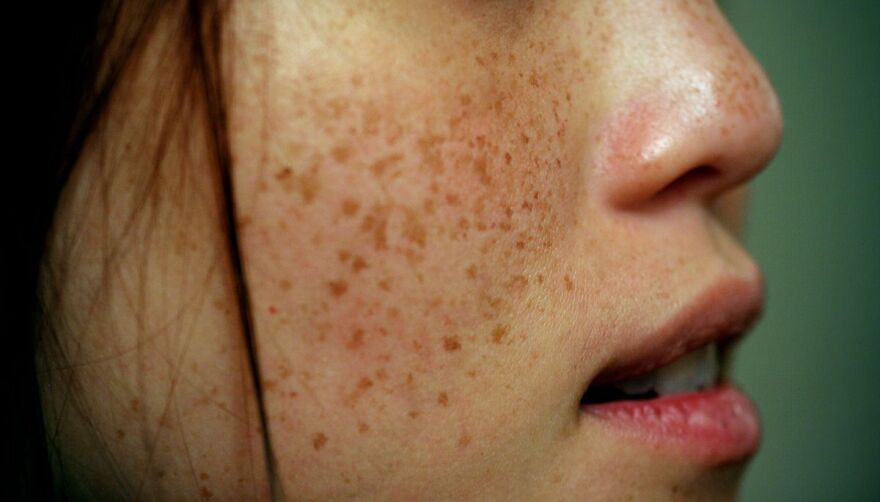The reason why our skin is light or dark can date back to evolution thousands of years ago. People who originated in places with high sun exposure have darker pigmented skin to protect them from the rays of the sun, and those who originated in areas with low sun exposure have lighter pigmented skin. But what is it about the pigment of our skin that causes freckles?
Dr. Emmy Graber can answer this question. This week on “Take Care,” the dermatologist and former director of the Boston University Cosmetic and Laser Center, and current president and founder of the Dermatology Institute of Boston, speaks with us about what a freckle is and why we have them.
“A freckle represents extra pigment, or melanin, that’s in the skin,” Graber said.
A freckle can be found anywhere on the body, but Graber says they are most commonly found on the face. And although a freckle may just look like a mole that hasn’t risen yet, the two are distinctly different, according to Graber.
“A mole is made up of clumps of different types of cells underneath the skin, whereas with a freckle the cells are an even layer of brown pigment underneath the skin,” Graber said.
Because the two look different microscopically, Graber says this is also why they look different on the surface of our skin.
Now, if you have red hair, you might wonder why you have more freckles than the average person. Graber says this is due to an overabundance of melanin. Often people with red hair have a specific gene that causes their hair color, and the receptor of that gene can be found on the cells that produce melanin, according to the National Institute of Health. Graber says it hasn’t been proven why this gene might cause more melanin, but it is the reason a person with red hair will also have reddish freckles instead of brown.
But no matter the color of your hair, Graber says most people are not born with all their freckles, and they are something that is acquired mainly during childhood. This can be due to a combination of genetics and exposure to sunlight.
“People who have a lot of exposure to sunlight; it can bring out their freckles that they may already be predisposed to get, and also sunlight can make anyone who has freckles become darker,” Graber said.
Another kind of skin pigmentation that sunlight can cause later in life is an age spot. However, an age spot is also different from a freckle since it is larger and solely caused by the sun. Although age spots are larger and may irritate you to look at more than a small freckle, Graber says if you’re looking to get rid of them treatment is much more effective than when applied to a freckle. In fact, treatment for a freckle has a very temporary shelf-life and is never permanent.
“They always come back,” Graber said.
Because freckles can be seen as an abnormality on the skin, some people may wonder if skin cancer can arise from them. But Graber assures there is no evidence that links the two.
“However, we do see skin cancer more commonly in people who have freckles, just because these are folks who tend to have fairer skin, and we know that those who have fairer skin types are already at a higher risk to develop a skin cancer,” Graber said.







